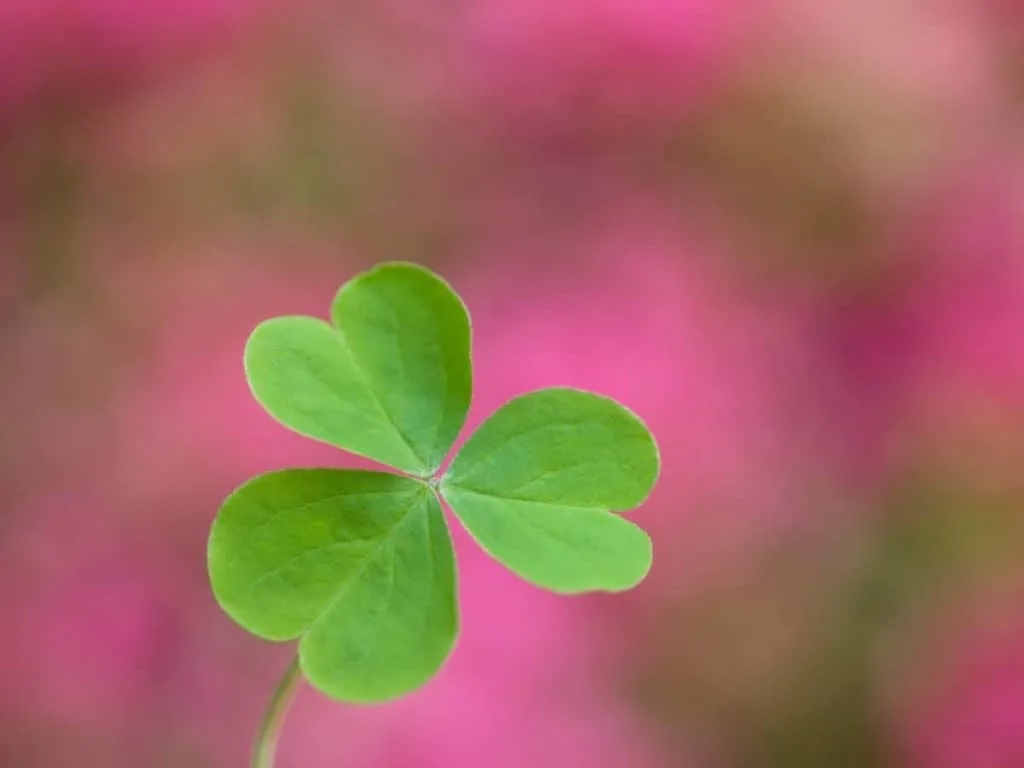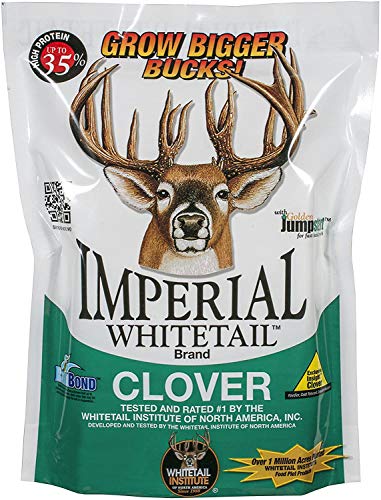Different species of flower plants have different requirements for sun and shade, as some plants require full sun to thrive fully and some prefer shade for growing.
So when you will be contemplating growing Clover or Trefoil on your lawn, the first thought that surely will come to your mind is, do Clover needs sun or shade to grow well. Therefore, let’s read further know the light requirements of the Clover plant.
Does Clover Grow In Shade Or Sun?
Most of the species of Clover plants prefer and thrive better when they are exposed to bright sunlight. This means Clover requires at least 6-8 hours of full and direct sunshine every day to grow fully. However, Clovers are tolerant to partial shade as well with just 4 hours of bright sunlight.

The Clover flower plants have over 300 existing species and most of them enjoy the full sun which simply indicates that Clovers grow healthily and fully when these plants get direct bright sunlight.
And at least 6 to 8 hours of bright and direct sunlight is the required amount of sunlight that Clover plants seek every day to strengthen their growth.
However, Clover plants are capable of withstanding partial shade too. Just by getting 4 hours of direct and full sunlight, Clover plants can thrive in a quite well manner under partial shade.
Also, some of the Clover species such as subterranean Clovers can tolerate shade more than others and can thrive in high-traffic places.
But even if Clovers are versatile Flower plants, it’s suggested to provide Clover plants with their needed sunlight every day so that their growth can’t be thwarted.
Does Clover Grow In Shade?
As there are 300 varieties of Clover, so it’s obvious that each species of Clover has its own requirement of lights and shade. So this section has included the most commonly planted Clover plants’ preferences over light and shade to grow fully.
Micro Clover:
Micro Clover plant is relatively shaded tolerant which means this Micro Clover variant of the Clover plant can grow in a quite well manner in shadowy areas without having any issues with their growth rate.
However, like most of the Clover variants, Micro Clover also thrives the best under full sun.
Red Clover:
The Red Clover variant also can withstand shade well. In fact, Red Clover is capable of adjusting to different kinds of conditions that make this plant ideal for thriving in shade with little sunlight. Although Red Clover offers the most promising yields in sunny areas.
Durana Clover:
Durana Clover is fairly shading tolerant as well and this variant of Clover doesn’t demand bright sunlight for long period each day.
It can just grow satisfactorily by getting only 3-4 hours of sunlight each day under a partial shadowy area which makes them a perfect Clover plant to grow in shadowy spots.
Strawberry Clover:
Strawberry Clover can’t withstand shade as much as the other species of the Clover plant. Rather Strawberry Clover is more tolerant to heat/full sun. So the full growth of Strawberry Clover can be hindered if planted in shade.
White Clover:
The White Clover plant is somewhat shade tolerant but it doesn’t mean that White Clover can thrive well in shade. It’s because the White Clover plant prefers bright sunlight or sunny areas to shadowy areas and grows in its full rhythm if planted under bright sunlight.
Latino Clover:
Latino Clover is fairly shade-tolerant too and can grow moderately well under the canopy of other plants or crops. However, this plant likes full sunlight more and will grow in its full growth, if it is planted in a sunny spot or the canopy of another plant or crop is opened.
Subterranean Clover:
Subterranean Clover is the best species among all other variants of Clover that can tolerate shade. Subterranean Clover withstands shade so well that they can thrive just by getting four hours of sunlight each day without having not many growth issues.
Will Clover Grow In Full Sun?
Clovers will grow in full sun because most varieties of Clover prefer direct and full sun to thrive fully.
Besides, Clovers are relatively heat-tolerant as well which means even if the heat coming from sunlight is unbearable for other plants, Clover can withstand that high heat without withering. And this makes Clovers more suitable to be grown in full sun.
Also, Clovers are drought tolerant so full sunlight can’t create much trouble for them in their growing process. But some of the Clover species are partial shade tolerant too which means they can grow with little sunlight and more shadow.
Where Does Clover Grow Best?
Clover grows the best in specific regions with low rainfall of Central Oklahoma, Texas, North Central, and California.
However, you can grow cultivated species of Clover at almost any place in most types of weather as long as it’s a subtropical region. But Clover will not grow in its best growth in areas of Southeast Asia and Australia.
And as far as it’s concerned about the soil type, know that Clovers will thrive the best if they are planted in a well-drained sandy foam soil that has a pH level between 6-7.
What Type Of Clover Grows Best In Shade?
Subterranean Clover grows the best in shade among all 300 species of the Clover plant.
The Subterranean Clover plant is not only the most tolerant to shade but also this species has been acknowledged as the most shadow-tolerant leguminous flowering plant.
And this makes Subterranean Clovers eligible to be grown in a very shadowy place or under canopies of other plants with a very little amount of sunshine. Subterranean Clover will thrive very well even if this plant gets 3-4 hours of sunshine.
How To Grow Clover?
To help you understand the steps while growing Clover on your lawn, a step-by-step guide has been added in this section. Go through it and follow the steps to grow healthy Clovers.
Prepare The Soil (For New Lawns Only):
Start off by preparing the soil in your lawn several weeks before by ousting pebbles, weeds, and other garbage. Then rake the upper layer of the ground to loosen up the substrate.
After that water the ground to stimulate any left weeds to grow. If you find any newly grown weed after a few days, remove them too and rake again to smoothen the soil.
But if your lawn is already a prepared one, you have to follow this step. Just mow near to the soil and rake out any grown thatched.
Mix Clover Seeds:
In the next step, create an assortment of your preferred Clover seeds and soil, sand, suitable grass seeds, and sawdust. Then spread the mixture all over your lawn.
And if you want to grow only Clover, mix the Clover seeds with sand only to stimulate the growth of Clovers, then spread the mixture in your garden.

Bury The Seeds:
Thenbroadcasting the seeds evenly all over the lawn, it’s time to bury them. Compress the seeds very lightly just by lightly walking on the areas or using a roller. Don’t bury too deeply because sprouts will not come out then.
Watering:
After planting the seeds, you got to water your Clover seeds daily for about 2 weeks. Regular watering will provide enough moisture to the seeds to grow sprouts and will help to have a healthy start to new life.
Fertilizing:
Feed your Clover plants with a fertilizer low in Nitrogen in favor of Potassium and Phosphorus so that the Clover seeds can get enough Phosphorus and Potassium while the Nitrogen level is low. It will boost the growth of Clovers.

Does Clover Need Direct Sunlight?
Maximum varieties of Clover require direct and full sun because Clovers thrive the best when they are provided with direct sunlight for about 6-8 hours every day.
Direct sunlight is an essential element for Clovers as it stimulates the growth of Clovers, therefore, these flowering plant takes less time to blossom in their own full rhythm. Even the species that are fairly shade-tolerant, prefer direct sunlight to grow in the best manner.
Also, if Clovers don’t get enough direct sunlight, they might grow but will have a very poor growth rate
Will Clover Grow In Hot Weather?
Be sure that Clovers will grow even in hot weather because all varieties are heat-tolerant. So even if Clovers are planted in an area with a hot climate, Clover will just stay green.
Also, Clovers are drought-tolerant, thence if Clovers are grown in the hottest and droughty areas, they will survive without facing problems.
Final Thoughts
Clover plants grow the best when they get direct bright sunlight for about 6-8 hours each day. But these plants are shade tolerant too and can grow quite well under partial shade and by getting just 4 hours of sunlight every day. However, for the best yields, provide Clovers with lots of sunshine.
